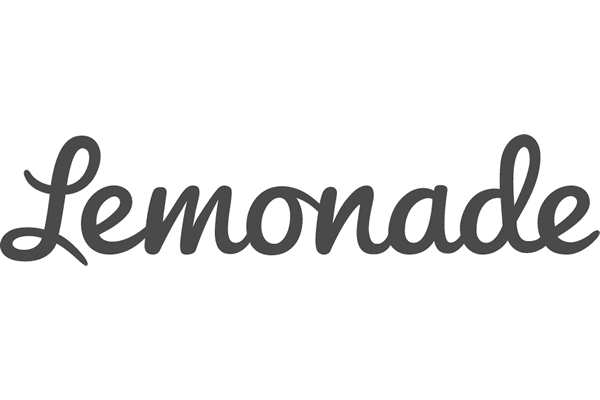This article was originally published in the Daily Fintech and is republished here with the author’s permission.

Since starting to cover the Insurtech space just under a year ago, one of my favorite things to see is when Lemonade makes a big announcement on a new initiative, product feature or particular stance (like they did on guns).
I enjoy these announcements for two reasons. First, I am intrigued by which part of the value chain they are going after. Second, I like to see the various reactions that follow their announcements.
As an example of this, I was recently reading the post on their Policy 2.0.
In response to this, there are articles ranging from J.D. Power: Why Lemonade’s Policy 2.0 Matters, stating how great this initiative is, to Making Lemons From Lemonade, a detailed analysis of Policy 2.0 by Insurance industry veteran, Bill Wilson. There was even a dedicated Slack conversation on this from the Insurance Nerds SlackChat.
I’ve seen this time and time again.
After reading this latest announcement as well as associated responses, it gave me a thought, more so a hypothesis. The hypothesis was that Lemonade has gone step-by-step to tackle some of, if not the biggest pain points that are faced in the industry right now.
They have made their call on what is the ‘right’ way to go about fixing these pain points, and pretty much called the existing process for that paint point, for lack of a better word, crap.
That last part is usually what brings out the negative commentary relating to an announcement they have made.
I don’t see many attacking ‘what’ area of the value chain/customer experience that Lemonade is trying to make better. It is more of the ‘how’. ‘How’ they explain why the current standard is wrong and in some cases ‘how’ they are going to fix it (read Bill’s analysis and Insurance Nerds SlackChat on Policy 2.0 to get into the nitty gritty of this).
So, to test my hypothesis, I went back and read every article that Lemonade has posted to date. This took a lot longer than I expected (or wanted) it to. However, it reaffirmed a few of my thoughts plus showed me some new ones (including the fact that Lemonade is really on top of updating past posts with hyperlinks to newer posts…how many of us can say the same for our digital marketing efforts?)
This article is not to scrutinize them to the nth degree. It is to look at what they have done structurally, technically and brandwise to see what we can learn from them. In addition, it is to look at why it is also important to pay attention to what their industry-savvy ‘critics’ say.
A look at Lemonade’s Announcement History
After reading all of Lemonade’s blogs, I picked out a few that stuck out to me. That is because these are the articles whereby they have stated the current ‘problem’ as it relates to the current Insurance model and their ‘solution’ to it.
I have included the blog, plus extracts of the ‘problem’ and ‘solution’ in their words (labeling of ‘problem’ and ‘solution’ is from yours truly).
| Announcement | ‘Problem’ (as described by Lemonade) | Lemonade’s ‘solution’ |
| World’s First P2P Insurance Company(Dec 2015) | ‘Insurance has remained fundamentally unchanged for centuries, so an insurance product for today’s consumer required re-architecting every part of the value chain.’ | ‘We created Lemonade as a purpose-built, technology-first, vertically-integrated and legacy-free insurance carrier.’ |
| World’s Only Public Benefit Insurance Company(May 2016) | ‘Rebuilding insurance as a social good, rather than a necessary evil, is now part of our legal mission….Working in partnership with nonprofits, and baking giving back into our business model holds the promise of a better insurance experience and a more valuable insurance company.’ | |
| Facebook Eats Insurance(June 2016) | ‘Growth dilutes affinity and that means damaging the product. People become estranged and distrust reigns. Consumers typically experience the blowback as rate hikes and claim denials.’ | ‘Insurance built on the paradigm of social networks would combine true affinity with universal eligibility. It holds the promise of insurance that’s far less conflicted, costly, and bureaucratic.’ |
| Hello World(Sep 2016) | ‘Insurance was first created to help communities thrive. Neighbors having each other’s backs when needed, sharing risks, and creating circles of trust. That sort of insurance lost its way, becoming a bureaucratic maze awash with endless paperwork and never ending phone calls with agents.’ | ‘We’re using technology to bring insurance into the 21st century, but we’re also transforming the very fundamental business model. Instead of making our money from denying claims, as is the norm within the industry, we treat your premiums as if it’s your money (shocking!), take a flat fee for our services, and return what’s left to a cause you care about. All this boils down to what we’re all about: we’ll pay fast (cheers for technology!), we’ll show you where your money goes (radically transparent!), and we’re driven by a community-focused and do-good culture (we ‘Giveback’ leftover money to a cause you believe in). We’re using bots and machine learning to venture into territory no insurance company has gone before: an insurance product with conversational UI that will get you insured in no time.’ |
| The Secret Behind Lemonade’s Instant Insurance(Nov 2016) Plus an example: Lemonade Sets a New World Record (Jan 2017) |
‘There are many reasons why insurance companies find it difficult to provide a good claims service. First, insurance companies are run by people, tens of thousands of them, doing manual labor, filling out forms, faxing stuff, and calling phones. These operations take time. Just think about those claims piling up on someone’s desk… But there’s another, less obvious reason. One that insurance companies feel bad admitting even exists. The secret insurance companies don’t want us to know: the less they pay out for claims, the richer they become.’ |
‘We realized that to build a system that is clean from bureaucracy, manual processes, and distrust, we would have to remove the temptation of maximizing profits by never keeping unclaimed premiums to ourselves. Instead of feeding from premium leftovers, we only take a 20% flat fee off the top. The rest goes to stuff like reinsurance, surplus, taxes, claims, and our famous Giveback. This way, regardless of the amount we pay out in claims, we end up with the same bottom line….We then used this knowledge to craft an instant claims experience for our claims bot – AI Jim. The algorithms powering AI Jim ‘understand’ the nature of claims, their severity, and whether the user is in a state of emergency.’ |
| Saving 80% In 90 Seconds?(Feb 2017) | ‘legacy insurers routinely abandon actuarial science when it comes to renters, instead setting a ‘minimum price’ that reflects their high costs, rather than your low claims. And so they might charge $200 or more for an expected loss of $30 or less. There’s nothing malicious about this. It’s a business necessity. But it does expose an unintended consequences of the traditional insurance model: Segments of the population least equipped to weather a loss are the ones being charged the most per unit of risk Renters routinely pay 200%-500% more per dollar of expected loss’ |
‘So how can Lemonade be 80% cheaper? You guessed it: by building an insurance company, from the ground up, powered by A.I. and behavioral economics. Not brokers and bureaucracy. It’s not just a marketing slogan: our acquisition costs are already 10x lower than legacy carriers. This allows us to do away with punitive minimum premiums, and allows renters to save a fortune on insurance. Simple.’ |
| Lemonade Exposed. Eight Months In.(May 2017) | ‘One point that we didn’t feel right about was the difference in the time it took AI Jim to handle a claim (3 seconds) and the time banks took to move money from our account to our members’ (several days).’ | ‘So we dug deeper and found a better way to send money to our members. Instead of wiring funds the traditional way, we now allow our users to receive claim payments directly to their debit cards, instantly!’ |
| Introducing the World’s First Live Insurance Policy(Aug 2017) | ‘Up until today, if a customer wanted to change their deductible amount, update their coverage, or add a new valuable they just bought, they’d have to contact their insurer’s customer support and explain their issue. Then, they would need to pay for some changes, and probably get a new policy sent to them in the mail (snail mail, of course). That’s where the red tape and long wait times come in, and where the industry, new or old, startup or multi-billion dollar big corp, is at right now.’ | ‘With Live Policy, Lemonade customers (existing and new) can now make changes to their coverages and more, whenever and wherever they are!’ |
| Zero Everything(Sept 2017) | ‘If you ever had to file an insurance claim, you probably thought well and hard before doing so. That’s alright, you’re in good company. Many people experience anxiety before filing a claim, and in many cases just give up altogether.’ | ‘never worry about paying deductibles or increased policy prices again (as long as it’s not abused, of course)’ |
| Introducing the Lemonade Insurance API(Oct 2017) | ‘It takes years to pull together the licenses, capital, and technology needed to offer insurance instantly through an app, which is why it’s almost nonexistent.’ | ‘Lemonade can be seamlessly integrated with commerce websites, financial advisor apps, property management companies, payment software processors, IoT platforms and more!’ |
| World’s First Open Source Insurance Policy(May 2018) | ‘To create an unconflicted insurance company you have to rethink the very business model of insurance; to make it transparent you have to take a bulldozer to its foundational document: the Policy.’ | ‘We’re taking a run at creating ‘Policy 2.0,’ with 4 overarching goals: Make a policy that’s simple, approachable, relevant, and digital.’ |
OK, so there’s obviously a lot there.
Let’s take a look at the pain points that they’ve identified:
- Too much paper in the process (for onboarding, servicing and claims)
- Too many people in the process. This includes intermediaries like agents/brokers for the sales process and multitudes of people for the various operational processes
- Speed at which claims are paid, as well as the manual nature of paying claims (i.e. check)
- Judgement in deciding which claims to be paid (i.e. ‘conflict of interest in paying claims’)
- Perceived lack of societal benefit for Insurance
- Too much focus on growth and having good financial metrics
- Lack of transparency where premium goes
- High customer acquisition costs
- Flexibility in policy contracts after issuance
- High deductibles and price increases after claims paid
- Being able to buy/sell policies anywhere (not just online direct from a carrier or through an agent/financial advisor)
- Policy contract language that is difficult to understand.
If you work for a carrier and read the list above on its own, many of these are probably items on your radar for your organization to improve, correct?
While these pain points will be specific to each organization, there are probably many Insurance executives out there that would agree with the fact that we have too much paper, should find solutions to speed up the way in which we process transactions (new business, servicing and claims) and we have a need to improve the perception from our customers.
What about their other articles?
In addition to the above posts on outlining specific pain points in the value chain, they have written some other blog posts which I found to be quite interesting as it relates to the positioning of their company as a whole.
I like the idea of their Transparency Chronicles, which is a much more pleasant read than a typical quarterly earnings report.
They have also done some write ups about how their Insurance model is changing customer behavior and how much has been given to charity through their Giveback. This allows them to show how their ‘solutions’ to the ‘problems’ in the existing value chain are working in practice.
Additionally, they give practical tips to their policyholders and the general public like Five (Unknown) Perks of Renters Insurance, How Our Brain Decides to Get Insurance and 10 of the Most Common Coverage Questions, Revealed. They also give tips on cities they launch in, like Your Insider’s Guide to Philadelphia. All of these create affinity to the brand way beyond insurance.
Lastly, if you weren’t aware already, they are very bullish on AI and how it can change not only parts of the value chain, but fundamentally how the business operates.
There’s a lot I think can be learned here too for us in terms of providing relevant and useful content for our customers (relating to the products we provide them and not).
So, if they are pointing out things that need fixing, why do they draw negative press?
Insurance is a ‘sensitive’ industry.
It’s sensitive because of the nature of our business. We are here to protect people against the unknown and then get them back on their feet if the unknown happens. That is our mission and purpose of being in existence.
Some, especially those who have been in this business for a while, who have a passion and built their career on this mission, get offended (and rightfully so) when someone attacks that which they truly care about. I’m ‘guilty’ of this too.
If you have a look at the folks that do a detailed analysis/critique of a Lemonade initiative, they are not the staunchy industry executives or intermediaries that Lemonade seems to be positioning themselves against.
These are industry veterans who care about the business with a deep passion. They also see a need for us to up our game and for technology to be part of that.
As mentioned earlier, it’s not ‘what’ Lemonade is attacking that folks get so upset about, it is ‘how’ they are doing it. As outlined above, many of the ‘what’ items they have highlighted are indeed things that need to be improved in our industry.
This is not about criticizing either side.
It’s actually about praising both of them.
Both are going after and protecting something that provides so much good for so many.
Both are coming at it from a perspective of the customer. Both are challenging each other to ensure that the propositions built for the customer are the best they can have.
We all have responsibility to our customers. Let’s continue to focus on that.
My only ask, for Lemonade and/or other challengers out there, is to try not to be so critical of our industry. There are a lot of hard working people who have put their whole lives into it and this industry that has provided so much good for so many people. We need customers to still want to do insurance, even if it is in a slightly different format.
With that being said, keep on identifying those critical pain points and finding ways to fix them. You will help to make the industry better.
And to their critics, continue to poke holes to make those solutions right for Insurance. Make it fact based and don’t make it personal.
‘The passage from one world to the next takes bold steps, Bernard‘
(I thought the quote above from this week’s Westworld was a great one for the summary section this week.)
One of the toughest things for us to do, both personally and in business, is to change, especially when the change is to something that you have been doing for such a long time.
The benefit that companies like Lemonade, and other startup insurer/MGAs (like Metromile, Hippo, Clearcover, Root, Next, Ladder Life, Slice and Acko to name a few) have, is that they are not encumbered by legacy.
They have been able to look at the pain points in our business, both from an operational and customer experience perspective, and reimagine it.
Maybe they haven’t gotten it all right, but they have caused us in the industry to take notice, in a big way.
For those incumbents still figuring their Insurtech strategy – take a look at what they’ve (the challengers) have done. Are your processes up to scratch?
This does not mean just getting a chatbot or just copying Lemonade btw.
Customers are looking for their next experience to be just as good as their last best experience.
If you are an incumbent and your policyholder’s next best experience is with one of these challengers, and you don’t have (at a minimum) what they have, then don’t expect these policyholders to stay with you for much longer.
Back to the initial question…
What do Lemonade, other challengers and their critics have in common?
They all want to make insurance better.
Stephen Goldstein is an experienced Insurance executive and Insurtech dealmaker with a core focus on growing revenue, launching go to market initiatives and advising industry leaders.
About Stephen Goldstein
Stephen Goldstein is a multi-disciplined, global insurance executive with experience working on three continents and eight countries. He has held roles in direct sales, sales management, market entry, risk management, advising and investing in startups and reinsurance. Stephen currently serves as an Advisor for two insurtechs, ProNavigator and Finaeo, and consults with insurance carriers and insurtechs on growing revenue, launching go to market initiatives and accelerating innovation adoption.
Stephen Goldstein is a multi-disciplined, global insurance executive with experience working on three continents and eight countries. He has held roles in direct sales, sales management, market entry, risk management, advising and investing in startups and reinsurance. Stephen currently serves as an Advisor for two insurtechs, ProNavigator and Finaeo, and consults with insurance carriers and insurtechs on growing revenue, launching go to market initiatives and accelerating innovation adoption.








